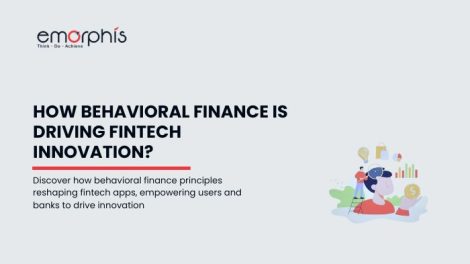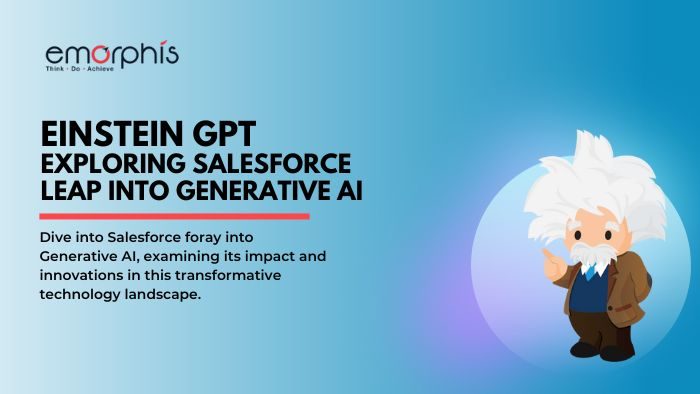Introduction
In the ever-evolving landscape of the financial industry, technology plays a pivotal role in shaping the future of banking. Among the most transformative technologies is Generative Artificial Intelligence (AI), which holds the potential to redefine the way fintech companies operate and also offer services to their customers. Let us explore the future of Generative AI in banking and moreover explore what fintech companies need to know to stay at the forefront of this exciting development.
The financial industry has been quick to embrace technological innovations, with fintech companies leading the charge. As customers demand more convenient, personalized, also efficient banking services, Generative AI emerges as a promising solution.
But what exactly is Generative AI, and how can it transform the fintech landscape?
Understanding Generative AI
Generative AI is a subset of artificial intelligence that focuses on creating data, content, or even entire applications autonomously.
This technology uses algorithms to generate content that mimics human-created data, such as text, images, and even code. Generative AI has made significant advancements in natural language processing and generation. Moreover, it can analyze vast datasets, learn patterns, and generate coherent and contextually relevant text.
Find details on AI software development
In the context of banking, Generative AI has the potential to transform various aspects of the industry, from customer service to risk assessment. Furthermore, Chatbots powered by generative AI can provide 24/7 customer support, improving the overall customer experience. These AI systems analyze vast datasets to provide personalized financial advice, also enabling fintech companies to cater to individual customer needs efficiently.
Click to Check the Top 11 Trends in Mobile Banking App Development
In the future, the collaboration between generative AI and fintech companies will continue to drive innovation in banking. In fact, by harnessing the power of generative AI, these companies can provide superior customer service, enhance operational efficiency, and identify growth opportunities. Understanding generative AI is not just an option but a necessity for fintech companies seeking to remain at the forefront of the financial technology revolution.
Now, let's dive into the exciting world of Generative AI Applications in Banking to uncover the specific ways in which fintech companies are leveraging this cutting-edge technology to transform the financial landscape.

Generative AI Applications in Banking
As we delve deeper into the realm of Generative AI, it's essential to explore its practical applications within the banking sector. Generative AI is not just a theoretical concept; it's a powerful tool that is already reshaping the way financial institutions operate. In fact, from enhancing customer service to improving risk assessment and fraud detection, Generative AI is poised to transform how banks serve their customers and manage their operations.
Generative AI has the potential to transform various aspects of banking operations. Let's explore its key applications:
Popular and Trending Applications in the Banking Industry Integrating with Generative AI
I. Customer Service and Chatbots
One of the primary applications of Generative AI in banking is improving customer service. In fact, chatbots powered by Generative AI can offer real-time, automated support to customers, answering their queries and addressing issues promptly. These chatbots can understand natural language and provide more human-like interactions, enhancing the overall customer experience. Generative AI-powered chatbots are becoming invaluable tools for banks. In fact, they can engage with customers, answer inquiries, and even provide account information. These chatbots can simulate human-like conversations and significantly enhance customer service by providing instant responses, regardless of the time of day.
II. Risk Assessment and Fraud Detection
Risk assessment and fraud detection are critical areas in banking. Generative AI can analyze vast amounts of data, including transaction history and customer behavior, to identify potential anomalies also fraudulent activities. As a matter of fact, this proactive approach can help banks and fintech companies prevent financial losses and protect their customers. Banks are increasingly employing generative AI for risk assessment and fraud detection. Also, these systems can analyze transaction data in real time, identify unusual patterns, and raise red flags. As a result, banks can mitigate risks and prevent fraudulent activities more effectively.
Click for Exploring the World of Fintech Apps: Revolutionizing Finance with Innovative Solutions
III. Personalized Financial Advice
Generative AI can analyze a customer's financial history, goals, and risk tolerance to offer personalized financial advice. In fact, by understanding a customer's unique financial situation, AI-powered systems can suggest investment strategies, savings plans, and other financial recommendations. This personalization can lead to higher customer satisfaction also retention.

Key Benefits of Generative AI Applications in Banking
Generative AI in banking holds immense potential, but it also presents a unique set of advantages and challenges that fintech companies need to consider. In this section, we will explore both sides of the generative AI coin, shedding light on the benefits and concerns that come with its implementation in the financial sector.
A. Enhanced Customer Experience
One of the primary advantages of incorporating generative AI into banking operations is the ability to provide an enhanced customer experience. Moreover, AI-driven chatbots and virtual assistants can offer swift, personalized, and round-the-clock customer support. In fact, they can understand customer queries, provide relevant information, and even assist with account management seamlessly. Hence, this leads to higher customer satisfaction and retention rates, ultimately benefiting the bottom line.
B. Efficiency and Cost Reduction
Generative AI automates repetitive and time-consuming tasks, both on the customer-facing front and behind the scenes. In fact, this automation results in significant efficiency gains for fintech companies. When chatbots handle routine inquiries and transactions, human employees can focus on more complex tasks, fostering better resource allocation and reducing operational costs.
C. New Revenue Streams
Generative AI has the potential to uncover new revenue streams for fintech companies. By analyzing customer data, AI can identify trends, also preferences, and behaviors, enabling banks to suggest tailored financial products, insurance policies, and investment opportunities to their customers. This proactive approach not only adds value to the customer's financial journey but also opens doors to additional revenue generation for the banks.
Click to check the details of Embracing the Future with a Leading Fintech App Development Company
Challenges and Concerns
While the benefits of generative AI are compelling, they are accompanied by certain challenges and concerns that demand careful consideration:
i. Data Privacy and Security
The vast amount of customer data involved in generative AI applications raises significant concerns about data privacy and security. In fact, fintech companies must implement robust data protection measures to safeguard sensitive customer information and maintain trust. Data breaches can have severe consequences, both in terms of legal compliance and reputational damage.
Connect with the Best Fintech App Development Services Company for cutting-edge financial technology solutions that will empower your organization to stay ahead of the competition, deliver innovative, secure, and user-friendly financial services, and meet the evolving needs of today's tech-savvy consumers.
ii. Regulatory Compliance
Regulatory bodies are adapting to the rapid advancement of AI in the financial sector. Fintech companies need to navigate a complex web of regulations to ensure they remain compliant. Regulations such as GDPR and those specific to banking are crucial considerations when implementing generative AI. Non-compliance can result in substantial fines and legal ramifications.
iii. Ethical Considerations
The use of AI in banking also raises ethical questions. Decisions made by AI, such as loan approvals or investment recommendations, should be transparent and free from bias. Ensuring fairness in AI algorithms is a significant challenge.
Regulations and Compliance in Fintech
In the fast-evolving landscape of fintech and generative AI in banking, regulations, and compliance are of paramount importance. Fintech companies embracing generative AI must navigate a complex web of rules, standards, and guidelines set forth by regulatory bodies to ensure responsible and ethical use of AI technologies in the financial sector. This section explores the regulatory considerations related to generative AI in banking.
a. Data Privacy and Security
Generative AI applications in banking often involve the collection and analysis of vast amounts of customer data. As fintech companies harness this data to offer personalized services and insights, they must prioritize data privacy and security. Data breaches can have severe consequences, including legal repercussions and loss of customer trust. Adhering to robust data protection measures, such as encryption, access controls, and regular security audits, is essential.
b. Regulatory Compliance
Fintech companies utilizing generative AI must keep a close eye on a myriad of regulations, including but not limited to GDPR (General Data Protection Regulation), AML (Anti-Money Laundering), and KYC (Know Your Customer) requirements. Compliance with these regulations is non-negotiable. Non-compliance can result in substantial fines and legal complications that can harm the reputation and financial stability of the organization.
c. Ethical Considerations
Beyond the legal requirements, fintech companies must also consider the ethical implications of their generative AI systems. Ensuring fairness and transparency in AI decision-making processes is critical. Addressing issues related to algorithmic bias, where AI models inadvertently discriminate against certain groups, is a key concern. Fintech companies should actively work to identify and rectify biases in their AI systems.
d. Industry-Specific Regulations
Banking is a highly regulated industry, and fintech companies need to be aware of these sector-specific rules. Regulatory authorities often have strict requirements for financial institutions. The integration of generative AI should be aligned with these sector-specific guidelines to ensure compliance.
Navigating the complex landscape of regulations and compliance is a continuous effort. Fintech companies need to stay abreast of evolving regulatory frameworks and proactively adapt their AI strategies to meet these requirements. In doing so, they can ensure that generative AI applications in banking are not only technologically advanced but also ethically and legally sound, fostering trust and long-term success.

How to Adopt and Integrate Generative AI into Banking Operations?
The successful integration of generative AI into banking operations is a pivotal step for fintech companies seeking to leverage the technology's potential. Adoption and integration strategies play a vital role in determining how effectively generative AI can be utilized in the financial sector. Here are the steps to integrate generative AI into banking operations.
Step 1. Planning and Strategy
Before adopting generative AI, fintech companies should develop a well-defined strategy. This strategy should align with the organization's goals and address specific challenges that the technology can resolve. Key considerations include identifying the areas where AI can make the most impact, defining performance metrics, and establishing a clear roadmap for implementation.
Step 2. Data Management
Generative AI relies heavily on data. Fintech companies must assess their data infrastructure and data quality to ensure that AI models can function effectively. This may involve data cleansing, standardization, and the creation of pipelines to feed AI models with up-to-date information. Robust data management practices are essential for the success of AI integration.
Step 3. Employee Training
To maximize the benefits of generative AI, employees need training to understand how these systems work and how to interact with them. This includes training for customer support agents who may work alongside AI chatbots and employees responsible for monitoring AI systems to ensure compliance and fairness.
Step 4. Seamless Integration
Generative AI should seamlessly integrate into existing banking systems and processes. This may involve customizing AI solutions to fit the organization's needs and infrastructure. A smooth integration minimizes disruptions and ensures that AI enhances rather than hinders existing operations.
4.1 Data Integration and Management
- Data Sources - Identify and integrate data sources such as transaction records, customer data, and historical financial data.
- Data Cleaning and Preprocessing - Implement data cleaning processes to ensure data quality and consistency.
- Storage - Choose appropriate databases and storage solutions to handle large volumes of banking data efficiently.
4.2 AI Model Selection
- Choose the right generative AI models, such as GPT-3, GPT-4, or specific financial language models tailored to the banking domain.
- Consider the model's architecture, scalability, and compatibility with the banking application.
4.3 Customization
- Tailor the AI model to banking-specific tasks, such as fraud detection, credit risk assessment, or customer support, by fine-tuning the model on relevant data.
4.4 API Integration
- Develop and deploy APIs that allow the banking application to interact with the generative AI model.
- Ensure secure API endpoints and data encryption to protect sensitive customer information.
4.5 Scalability
- Design the system to handle a growing volume of data and user requests by using scalable infrastructure, such as cloud computing resources.
- Implement load balancing and distributed computing strategies for improved performance.
4.6 Real-Time Processing
Integrate the AI model to provide real-time or near-real-time responses in applications like chatbots or automated customer support.
Step 5. Compliance Considerations
Fintech companies must carefully consider regulatory compliance during adoption and integration. Compliance should be integrated into the AI development process to ensure that the technology operates within the bounds of banking regulations, such as anti-money laundering (AML) and know-your-customer (KYC) requirements.
Step 6. Continuous Monitoring and Improvement
Once generative AI is integrated, it's essential to continuously monitor its performance and make improvements as necessary. AI models require ongoing maintenance, and feedback loops should be established to address issues, refine algorithms, and ensure optimal performance. In sum, the successful adoption and integration of generative AI in the banking sector requires careful planning, data management, employee training, and a commitment to compliance. When executed thoughtfully, generative AI can transform banking operations, providing enhanced customer experiences, increased efficiency, and the potential for new revenue streams.
As generative AI continues to evolve and gain prominence in the banking sector, its future holds exciting possibilities that promise to reshape the industry in several key areas. Let's dive deep into the future of generative AI in banking.
The Future of Generative AI in Banking
- Enhanced Customer Experience
The future of generative AI in banking will bring about even more advanced and natural language processing capabilities. Chatbots and virtual assistants will become more adept at understanding customer intent and delivering highly personalized responses. This level of sophistication will not only improve customer satisfaction but also foster deeper customer engagement and loyalty.
- Efficiency and Cost Reduction
Fintech companies will increasingly rely on generative AI to automate tasks that were once time-consuming and manual. With further advancements in AI technology, banks can enhance operational efficiency, reduce costs, and allocate resources more strategically. Employees will collaborate with AI systems to tackle complex challenges while AI handles repetitive and routine tasks with ease.
- New Revenue Streams
Generative AI will play a pivotal role in creating new revenue streams for fintech companies. By analyzing customer data with unparalleled precision, AI systems will offer tailored financial products and services, such as investment recommendations and insurance packages. This proactive approach will lead to increased customer engagement and revenue generation, positioning banks for growth and innovation.
The future of generative AI in banking is brimming with potential, promising to deliver a banking experience that is more customer-centric, efficient, and profitable. To seize these opportunities, fintech companies must remain at the forefront of AI advancements, continue to prioritize data privacy and regulatory compliance, and be committed to addressing concerns like algorithmic bias. By doing so, they will drive innovation and remain competitive in an ever-evolving industry landscape.
A must-read recommendation - Top Trends in Fintech App Development in 2023-24 and A Guide to Best Practices and Strategies for Fintech App Development
Conclusion
In conclusion, generative AI is reshaping the banking industry. With advancements in natural language processing, automation, and data analysis, banks can look forward to providing customers with more personalized and efficient services. This will not only improve customer satisfaction but also drive innovation and growth within the financial sector. In this transformative landscape, fintech app development companies play a crucial role. They act as the driving force behind the successful integration of generative AI into the banking industry.

Fintech app development companies are essential because they possess the expertise and resources required to create, customize, and seamlessly integrate AI solutions into the existing banking infrastructure. Their role involves crafting strategies, managing data effectively, and ensuring that AI systems operate within the bounds of banking regulations.
Find details on AI software development
Fintech companies and their app development partners must strike a balance between reaping the benefits of AI and addressing the challenges it poses. With the right strategy, expertise, and commitment to compliance, generative AI can revolutionize banking operations, enhance customer satisfaction, and unlock new opportunities for growth and profitability.







